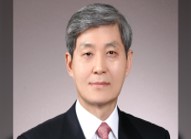Presenters

Course Details
EGFR TKIs are not Equal: What RCTs tell us
As more EGFR TKIs become available for patients with NSCLC, the clinical decision on which agent to give patients becomes more complex. During a DIALOG webinar, Professor Keunchill Park (Korea) shared the most relevant RCT data on EGFR TKIs in NSCLC treatment, including the LUX-Lung 7, ARCHER 1050 and FLAURA studies.
Estimated Time of Completion: 5-6 mins.
EGFR TKIs, are they all the same in the real world?
The treatment of EGFR-mutant NSCLC using EGFR TKIs has become established, leading to a substantial amount of real-world data on this treatment strategy over the years. During a DIALOG webinar, Professor Keunchill Park (Korea) shared the most recent collection of real-world data on the different EGFR TKIs in NSCLC treatment, including recent Asian data from Korea, Taiwan and Japan.
Estimated Time of Completion: 5-6 mins.
Treating NSCLC with T790m mutations
T790m mutation is the most common mechanism of resistance to first- and second-generation EGFR TKIs. During a DIALOG webinar, Professor Keunchill Park (Korea) discussed the emerging treatment strategies to assess and manage NSCLC patients T790m mutations.
Estimated Time of Completion: 5-6 mins.
Maximizing EGFR TKI treatment in NSCLC
In patients with EGFR mutant NSCLC, prolonging time TTF and chemo-free time is a valuable goal among patients. During a DIALOG webinar, Professor Keunchill Park (Korea) highlighted the role of proper treatment sequencing in achieving maximal TTF and prolonging survival in NSCLC.
Estimated Time of Completion: 8-9 mins.
First-line EGFR TKI choice to optimize treatment sequence
The choice of first-line EGFR TKI has an impact on the overall treatment sequence and the eventual clinical outcome of patients with EGFR mutant NSCLC. During a DIALOG webinar, Professor Keunchill Park (Korea) underscored the role of second-generation EGFR TKIs in maximizing TTF and extending survival in NSCLC.
Estimated Time of Completion: 5-6 mins.
About the speaker
Professor Keunchil Park is currently the Director of Innovative Cancer Medicine Institute and Professor Emeritus in the Department of Hematology-Oncology in Samsung Medical Center, Sungkyunkwan University School of Medicine.
Upfront EGFR TKIs Selection: 1st, 2, or 3rd Generation? Course Outline
- Differentiation between EGFR TKIs Adherence to antihypertensive treatment is poor
- Differentiation between EGFR TKIs: More real-world data Reasons for Insufficient Pressure Control
- T790m mutation Improving Medical Adherence
- Treatment sequence: Afatinib followed by Osimertinib
- Treatment sequence: Afatinib vs 1st-gen TKI as first-line
PC-PH-103430 / March 2022
